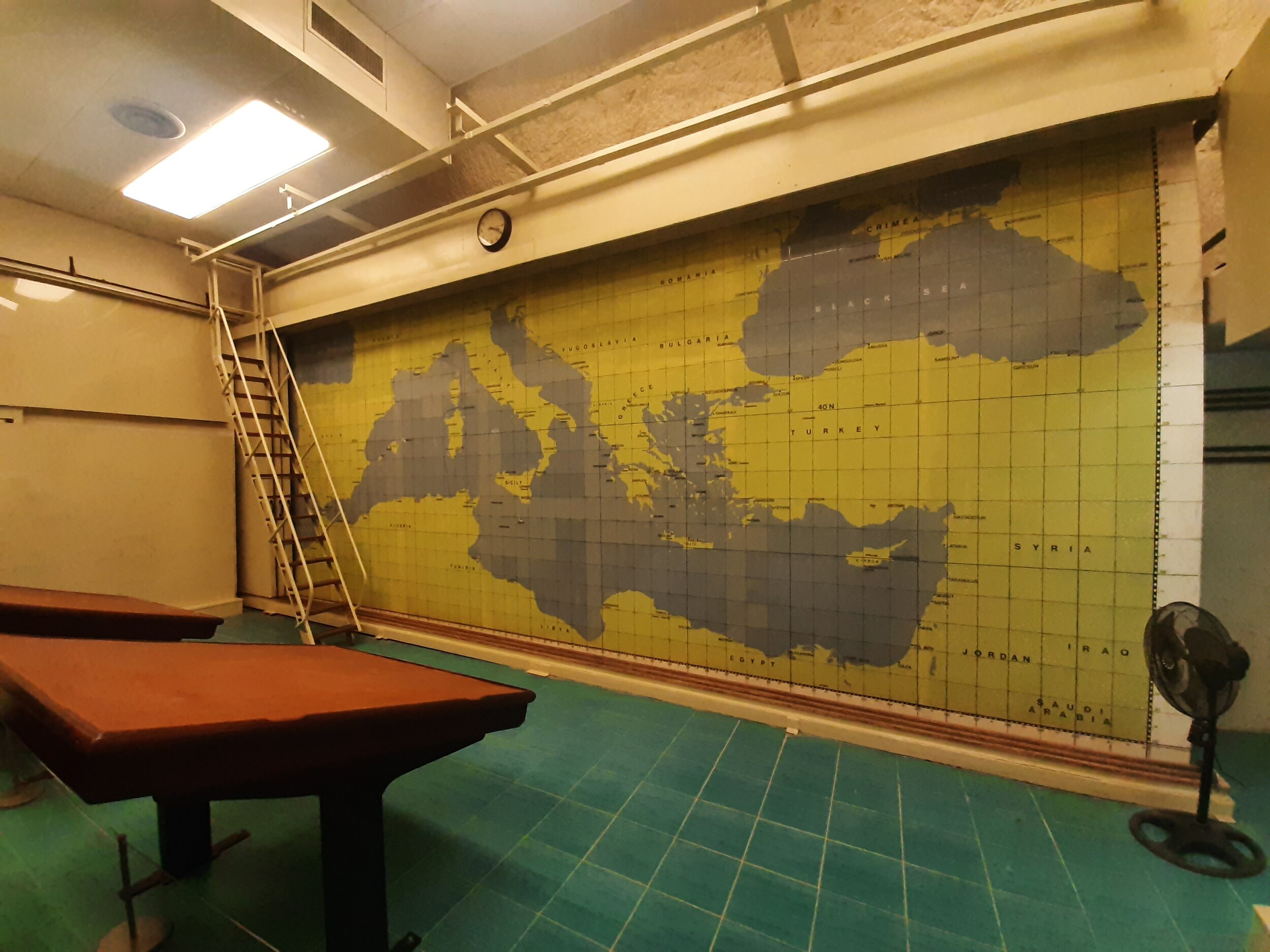Iceland does not feel like changing scenery - it is like changing planet. Going for a week off road in Iceland’s South is a good thing to do, while on my construction site the house foundation went through the finish line. April is a little to late for a good chance to see Northern lights. But Iceland has a lot to offer: glaciers, volcanos, waterfalls, geysers and all you need to push a 4x4 to the limit …
TIAS and on to Zürich
Winter 2022/23 is over
My favorite Social Media: Postcrossing
Recently, I enjoyed “Postcrossing” after I heard about it on a German radio station. It is a global platform organizing the exchange of postcards among enthusiasts. As I buy postcards in most places I go, …
Hong Kong's Year to Rebuild
As I continued coming to Hong Kong, even during the pandemic lockdowns, I could now feel the optimism of an awakening city after hard years. Troubles started in 2019 with violent riots on the streets and then two years of being literally cut off. Still, crossing over to the Mainland, has some quarantine regulations in place, …
Frankfurt-Riga-Tallinn-St Petersburg-Moscow … and back
Pour toi Arménie
In memory of the three heroes of the 1977 movie Mimino, set in Dilijan (trailer, see below).
My first introduction to the Armenian diaspora was in the early 1990s through Hasmik Papian, who was performing at the Bonn Opera. I also had the privilege of meeting some of her friends and family gathering in her home in “Weststadt” of the city with late “Gründerzeit” architecture. Back then, being a young science student, this was a formative introduction to an interesting and new genre. Since then Armenia stayed in my mind, and with the many tragedies and disasters, it faced since 1915, which probably have still not ended with the 2021 ceasefire agreement. Of course, I remember “Pour toi Arménie”, a charity song by the Franco-Armenian Charles Aznavour performed by a group of French singers, to gather relief after the earthquake in December 1988. Even though, I have to say this is a little too cheesy for my taste. For long car drives to the Netherlands recently, I do have some other songs sung by Charles Aznavour in my playlist, for example, “La Bohème” and others of his early chansons.
It took more than 30 years until I set my feet into Armenia for the first time, and I remain being impressed by the country and its people. I was originally planning to go to Moscow last week, but with recent events in Ukraine and the implications this has on logistics, activities have been diverted to Dilijan, a small town two hours drive from Yerevan. With a very tight schedule, I did not have the chance to travel around. But Armenia will be one of my coming destinations, to explore more. What surprised me very much to find in Dilijan was the United World College. Inspired by the UWC in Maastricht, Ruben Vardanyan together with his wife Veronica Zonabend, founded this very impressive initiative and I am happy to see it flourishing and alive.
Mimino (1977). The story of a big dream in Dilijan.
5 years UWC. Another story of a big dream in Dilijan.
B&B (Boat and Bicycle)
It is always a nice and special perspective to approach a countryside or city by boat. It is a detached world from the buzz. Living on a boat, is even a step beyond, specially in the Netherlands. And then there is the second Dutch mode of transport: the bicycle. As my Marina is close to Arnhem, I explored the ride on my folding bike to the city. One objective is also to take the bike to the train station and then fold it up and take the train to Tilburg University. This sounds like a nice commute. The best mode of commuting, I ever had was taking ice skates in winter from my home to the office in Beijing. But also, now boat-bike and train sound like a good option.
Where are all the Superyachts gone?
Leaving Quarantine
Some years ago, I joked about Hong Kong, that it would not be a city but a vertical storage and logistic system for live human bodies. The whole purpose of Hong Kong is to move human bodies efficiently between boxes to produce GDP. I just spent two weeks of quarantine in Wanchai and was impressively demonstrated by my view on the cemetery that the final box of this process is the tiniest one and does not have windows. I am joking again. Of course, there are other things you can do professionally in Hong Kong. For example, build the boxes. Or think in boxes.
Don't get me wrong, I have fond memories of this city, as I lived on Lamma Island for five years. Some of the best of my life, I may say. I love the South China Sea, the outer islands, the hiking trails, the black kites, the Bauhinia trees, and some places where there is still a character of hard work against all the odds and succeeding. It was not long ago that people swam into Hong Kong for freedom and prosperity. And these people worked incredibly hard, and you can still find this culture of resilience in some quarters. If you want to learn something about entrepreneurship, then close the textbook and get a plane ticket.
In the end, Hong Kong is a historical anomaly. It would not exist hadn't the British violently forced open the Chinese market and occupying this "rock" for a hundred years before returning it to its homeland. Later as a colony and ruled by appointed governours to serve British interests, it became a loosely regulated financial centre - with all the consequences this entails.
Also, some local tycoons made their fortune, often by getting government concessions and licenses or by smuggling and drug trade and diversifying into Casinos in Macao. There is a fixed term for some British bankers who came here during the wild days: "FILTH" (Failed In London, Try Hong Kong). Recently, the pendulum is coming back, though. Let's call it FIHKRL; even it's hard to pronounce. So now London builds an amalgamation of FILTH and FIHKRL. It's probably a good choice that a comedian now governs the UK as a Prime Minister. At least in a democracy, people get what they deserve.
At 00:01 a.m., my quarantine ends, and I will go out into "the wild" again. I am looking forward to it, getting a first hand impressing and catching up with friends. On Saturday morning at 9:30 a.m. I will start with teaching an 8 hour MBA block class. This is always a pleasure, and I hope I won't act too funny in front of the first real humans I see after two weeks. Forgive me if I do.
Syllabi lullaby in Hong Kong quarantine
I am spending 2 weeks in quarantine in Wanchai. Public health policies in Hong Kong SAR here are an unfortunate mix of virology, superstition and politics. That’s why I am locked up here. But luckily, I have a lot to prepare, and also took the task of writing syllabi and filling in course alignment tables. Today, I got across Bloom’s taxonomy for cognitive levels. Reminds me a little of crossword competitions, when elderly ladies meet in the local community centre. I guess it’s like ISO 9000 for academics. So I just get it done. But there must be easier ways to play this game than with an Excel sheet, especially when thinking about aggregating all these on a School or University level to tick the box for some accreditation or government body.
It’s funny, I have never seen even a course syllabus in the old times. We just had a University-wide “Vorlesungsverzeichnis” (course directory) which you could buy for 5 Deutschmark at the university bookshop. This contained basic information, like the title and the lecturer and a brief description of the content. As a student, how I used this at the beginning of the term, was to mark all courses that interested me. If I did not know the lecturer, I went to their bulletin board to see what they were working on, and to the library to look up their publications. With a completely overloaded starting schedule, I then went to every first lecture for “speed dating” the courses and the lecturers. Only then, I had a look at the programme requirements and considered what I need to do, But these requirements (pre-Bolognia convention), were relatively loose. Should I have noticed that most of the things, I am interested in are not on my schedule, I would have changed to another programme, because obviously I was enrolled in the wrong game.
Now, this may sound inefficient. But I finished my studies at the appropriate time, with an outstanding grade and even received a research prize for my “Diplomarbeit” (master thesis). I also worked as a research assistant, and as a junior scientist in the UK, while still enrolled in Cologne (Germany). This allowed me, to pay back my Bafög (a sort of government student loan supporting my living expenses) in one instalment, which got me a huge discount. Together with being fast and having outstanding grades, I qualified for other reductions, and I really nearly paid back nothing. Tuition was free anyway, as it still is. I also received a little scholarship of 150 Deutschmark per month for books, which I mainly spent on oats, spaghetti and baked beans in tomato sauce. Books I got from the library. So, I also learned among these a few life skills. For my PhD I received a full scholarship from the DFG (German Research Foundation). This was of course far more specialized and I really had to drill deep in my subject. Even though, I was lucky to work in an interdisciplinary team (Graduiertenkolleg) of scientists and engineers.
Now, after a long corporate and entrepreneurial career, I am on the other side of the game. A lot changed. For about a decade already I am splitting my time between commercial work and academia. I am taking the practitioner's view on lecturing. This is why I do enjoy Executive Education and EMBAs quite a bit. But also the young and inexperienced students are great fun to teach. And for research, I have the privilege to get exposure in commercial projects, which give me a quite focused reason to find things out and apply them.
Perhaps also this attitude is rooted in my own University time, which I was very fond of. Besides my supervisor, Prof. Dr Helga Besler (yes my boss was a woman in a “man’s” domain), turned up another character: Prof. Dr Gerhard Bischoff, a geologist. He was trained as a German Luftwaffe-Pilot in 1943 - 1945, as a last agonizing attempt of Nazi-Germany, to get even younger men slaughtered, in the stage of “totalen Krieg” (total war). Luckily for him, he was not shot out of the sky, but the planes were destroyed unmanned on the airfield. So, what can a young pilot do after the war? For example, go to Australia, develop geomagnetic surveying equipment and explore by plane ore deposits for example. With further geological understanding, he realized also that there are oil source rock deposits on the Western Amazon, and as Chief Exploration Officer of Petroperu, he discovered oil there. This brought him to further think about his own plate tectonic models. When I had a geology exam in his office, he started with throwing me a stone ashtray and asked: “What is this?” Then he sat down on an elephant foot stump and lighted a cigarette, offering me one (which I rejected, being a non-smoker).
It was also no secret that the relationship between him and my boss, Helga Besler, was about more than just exchanging rock samples. One day a book volume of airborne photography of Namib dunes (her research field) turned up in her inbox as a gift. It was my job to manage the post for her, so I took this out separately and put it on her desk. Like with any gift from a gentleman, the price was concealed by black ink. So, she told me to go to the lab and try first ethanol, then acetone to find out how much he paid. I was afraid though, that the solvent may damage the book, and so I just went 2 floors down to his office, pretending that I want to buy the book also for myself and asked for the price. I was told the price, asked in for a chat, we looked through the book with the opening sentence: “And these are Helga’s dunes. I have been on the top. Quite a satisfying view”. Then came laughter and smoke blowing my direction. They don’t make these people anymore. They both passed away in 2001 and 2012, after a long and rewarding life, which also included some dunes.
Our shot in Havanna? ... or from Moscow with love?
In Germany, I fall through the grid again: 55 years old, no preconditions, not medical staff, not teacher nor police. My work is a lot about travelling to risk areas. Does that count? … No! … I can show contracts and invitation letters, and I have parents above 80 who I need to take care of. Counts? … No! ... How do you dare, trying to jump the cue? Have solidarity! Don't be antisocial! ... Me, antisocial? Why? When do you think I can get vaccinated? ... Okay, I was just asking. Sorry. German efficiency is a lot about criminalizing people who don't fall into the pattern. Even Germany is actually not efficient - but that's a different story.
So, let's do things the good old way and forget about Germany. I actually do have access to vaccinations. But stealing is unethical. And that would be really jumping the cue because these doses are scheduled for others. Some German local politicians did that - well, not stealing of course - but taking personal precautions so that they can better serve their constituency. Others were taking fees for facilitating deals for medical equipment, to better protect the public. I appreciate their efforts, but I am not a politician.
However, for me, vaccinations are available in Moscow, Tel Aviv, Havanna, Dubai or Hong Kong. In some of these places, you still have to quarantine, though. You can choose either two trips to a nice place or do a long one. Moscow is my favourite European city, anyways. And a vaccination centre is in the ГУМ Department Store, just opposite the Kremlin. It’s wonderful Russian architecture from the end of the 19th century, with a glass roof. And you still get a Sovjet style ice cream, wrapped in aluminium foil in the basement. That in itself would be worth going. It would also be interesting to see what changed in Havanna. In Hong Kong, when you choose Sinovac instead of BioNTech, it comes with a Visa to Mainland China. That’s great. Tel Aviv is just around the corner, and I am very interested in how the Israeli tech industry and research are doing. Dubai is a little too much shopping for my taste. And last but not least, there is Malta. When it counts, Malta often proofs to get the job done.
Haircut and cut throat economics
I finally got my haircut in Malta. I always go to Jacqueline’s in Kalkara and she does a wonderful job. She increases her prices moderately each year. But given the surge in living cost in Malta, this is more than justified. I paid 7.00 EUR. A few years ago, she went on a trip to Belgium to train on improving her gentlemen’s barber services and dedicated a corner in her shop for it. I am afraid, my feeling is, this did not take off too well. But she keeps busy with a solid base of ladies as customers. The demographic structure of her clients is a bit on the right side of the age distribution. So, I hope they all keep strong and healthy, not only to support her business, of course. You find a lot of hard-working people in Malta, especially of her generation, making a viable small business out of nearly nothing. And this is not really easy here, because some cost advantages Malta may have, are easily eaten up by inefficient services, red tape and corruption.
During my travel time of the year, I cannot always make it on time back to Malta without getting a bit disorganised. So my second source of decent haircuts was for many years The Barber Shop on 15B Wellington Street in Central Hong Kong. It was a bit awkwardly located in a narrow back alley between skyscrapers, up the staircase above an erotic lingerie store. However, once entering the barbershop, you were in a classical and very stylish men’s only hair salon. But with rising rents and less demand for proper haircuts, it had to close. However, I was happy that my favourite Thai hairdresser, called Angel, managed to spin off her own store and called it “Angelhair” in Wanchai. It was a really nice shop, which she set up with a partner specialising in other beauty products, which I am not acquainted with. She was extremely proud when she showed me around her shop. After one visit, at the beginning of the Hong Kong riots, I realised it will become tough for her. Wanchai was one of the centres of months of violent protest, destroyed infrastructure and manhunts between the police and hooligans. Then came Covid-19. I know that Angel tried everything to keep her shop alive. After rental negotiations with the landlord fell on deaf ears, she started borrowing, first from her family, then from friends and later from everybody to “restructure her debt”. Then, with more turmoil and economic pressure on more people in Hong Kong, came the “go back to your own country” folks. I don’t know what happened to her. In her “own country”, last year protests erupted challenging the Thai Royalty. Perhaps she went. Her shop is gone.
I regard these as the real entrepreneurs. They have “Skin in the game”. I never call them “start-ups”. Of course, different industries have different financing mechanisms, and you can’t compare a barbershop with a unicorn. But you also can’t compare most “start-ups” with a unicorn. It’s a Cargo Cult, or bluntly just a muppet show. Even the term “cash burn” causes quite some unease in my value system. Perhaps, the word “Entrepreneur” is a better word instead of “start-up”. I remember the head of the “Entrepreneurship centre” who relocated from Oxford to Malta University and talked a lot about his mother, translated “Entrepreneur” as “in-between taker”. I think his name was Russel and besides French, he also knew everything else. That’s what made him a coach. Or was it couch? I need to work on my English, yes, and on my manners.
Talkshow resilience
With my headstart on the new Corona-Virus, back in Hong Kong in January 2020, it is now about my anniversary for Covid-19. A few friends got it and luckily recovered well - some more, some less easily. A few distant acquaintances sadly died of it, mostly aged above 70, but also others in their middle ages. I personally was lucky. But to put things in perspective: compared with military deployment, gunpoint mugging in Africa and South America, SARS in 2003, multiple car crashes, an emergency landing in an Antonov with a drunk Russian pilot, reanimation after drowning with cardiac arrest, MERS and Ebola, and Malaria Tropica I caught in Homabay … personally, Covid-19 was so far a walk in the park. I sometimes tell students, that if they did not survive an assassination attempt at the age of 30, it means they are either dead or dead boring. Or how come nobody wanted to kill them in their 20s? They regard this as an expression of “German humour”.
I understand the supply of classical radio stations on FM as an indicator for the culture of a society. Malta has non and it needs the short wave to access stations from Italy. But in Germany, there is a lot, and I usually enjoy listening when I am here. But these days I do get a little tired about all this current “resilience” talk, and the psychological effects of lockdowns. I am sorry for those suffering, but this is really too high level to me. Germany has one of the world’s best health care systems, massive government support for industries affected, their employees and also self-employed. Shops are well stocked, infrastructure is up and running, vaccinations are coming. Meanwhile, the public conversation is spiralling down into depression? Perhaps that’s why Germany produced so many philosophers: we just have so many sad people. My recommendation is to pull yourself together for a few more months. Or can cry about climate change for a difference. If already this virus challenges the mental resilience, better get used to it.
I turned 55 this month, and I heard on the radio that older people can cope better, especially when they have overcome some hardship. I don’t know. I have travelled to many countries in my life, including active warzones and somewhere war ended literally just yesterday, and shootings still flaring up without warning. It always impressed me, how fast people of all ages overcome adversity. Yes, there are sad cases of life long trauma. But, independent from age, my impression is that humans are built to survive, and also build to forget and forgive if necessary. I recall somebody who remembers living as a child in a Beijing earthquake shelter as a “happy childhood”. The shock only came when the Sichuan earthquake showed the same person as an adult what the scenario of her limited childhood experience actually looked like.
Do not get me wrong: I am not advocating forgetfulness. By the contrary, keeping memories of hardship, disaster and injustice are very important. It is not just in memory of victims, but also to hopefully learn from history. And we can use it to put the own perceived suffering into relation. A lockdown is not a prison experience. Children in homeschooling are not Anne Frank. It’s cynical that people even make these comparisons. In Germany, we have with Covid-19 the first real challenge since generations. And I think we are doing well, and are perhaps even a bit too loose and late with restrictions. The Federal Government bought today 200 000 doses of Regeneron, the antibody cocktail with which the former US president and his buddies were treated. And those who still feel scared, left behind, alone, bored and depressed: How about volunteering in a vaccination centre? They need people.
Billboard in Lebanon, photo taken 2019
Guns, Germs and Steel
On my return from Hong Kong, I still picked up Xi Xu’s book “Dear Hong Kong: An Elegy to a City”, and before the turn of the last year, I read it on the way to Malta. It is a farewell letter to a city, which was also my home for five years. Did I not live on an outer island in the South China Sea, back then, I would have found the city itself unbearable. It struggles to build new capabilities, needed to be a significant part of China and staying relevant in a world which is moving on. Hong Kong was “frozen” for 50 years by British negotiators at the time occupation ended and the city returned to China. I really liked Xi Xu’s personal tone and her views on Hong Kong. A second book, which I read the first time in 2007, I reviewed by listing to the audiobook: Jared Diamond’s Guns, Germs, And Steel - The Fates of Human Societies. Just in the middle of many Western countries failing to manage a pandemic, and the US government globally mongering conflict and rattling swords, this was an interesting reminder, how societies rise and fall.
The Malta at War Museum timely features an exhibition on gas masks. This style fits into the necessity and fashion today, even our FFP2 standard is less spooky.
Grafitty in Zabbar. Germs.
Gund and steel - The Saluting Battery in Valletta.
View into the HQ bunkers in Malta, in a room where the Mediterranian is monitored. It was last used in the Cuban missle crisis, to potentially block Sovjet ships passing through from the Black Sea.
Air defense coordination room in the Maltese HQ bunkers.
On my favorite walk from Kalkara to Marsaskala
Birgu
Last sunset 2020 in Cospicua
Kalkara waterfront - my village
Kalkara Boat House
Finally arrived Hong Kong - really
After two weeks of quarantine, Hong Kong greeted me with a marvellous sunny and mild day. I spent all of it walking, and had to learn that being looked up in a room for that time, makes me shaky on uneven ground. This was really a long journey to Hong Kong. I could have taken the train from Tilburg through Chengdu down here (in normal times).

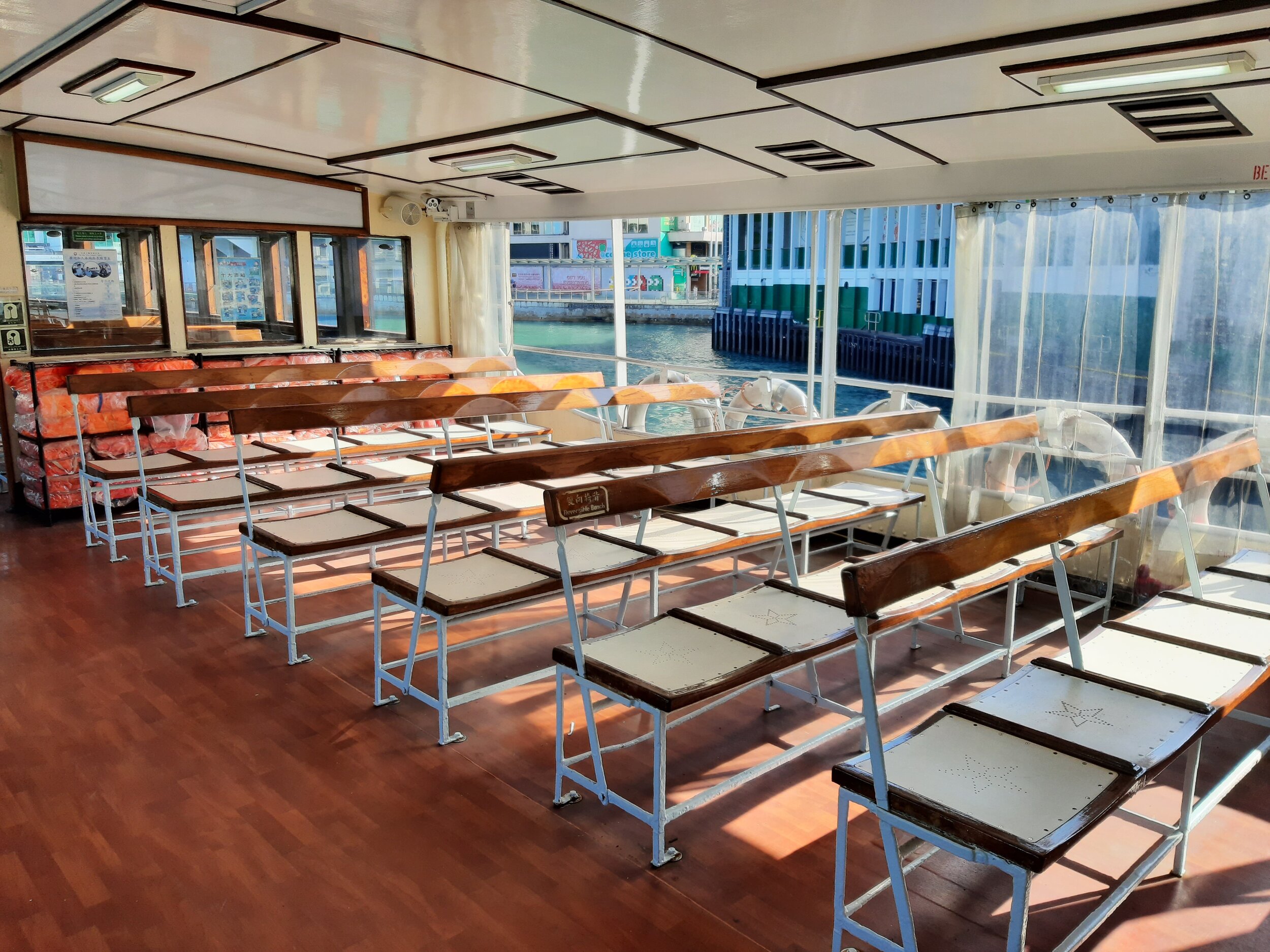
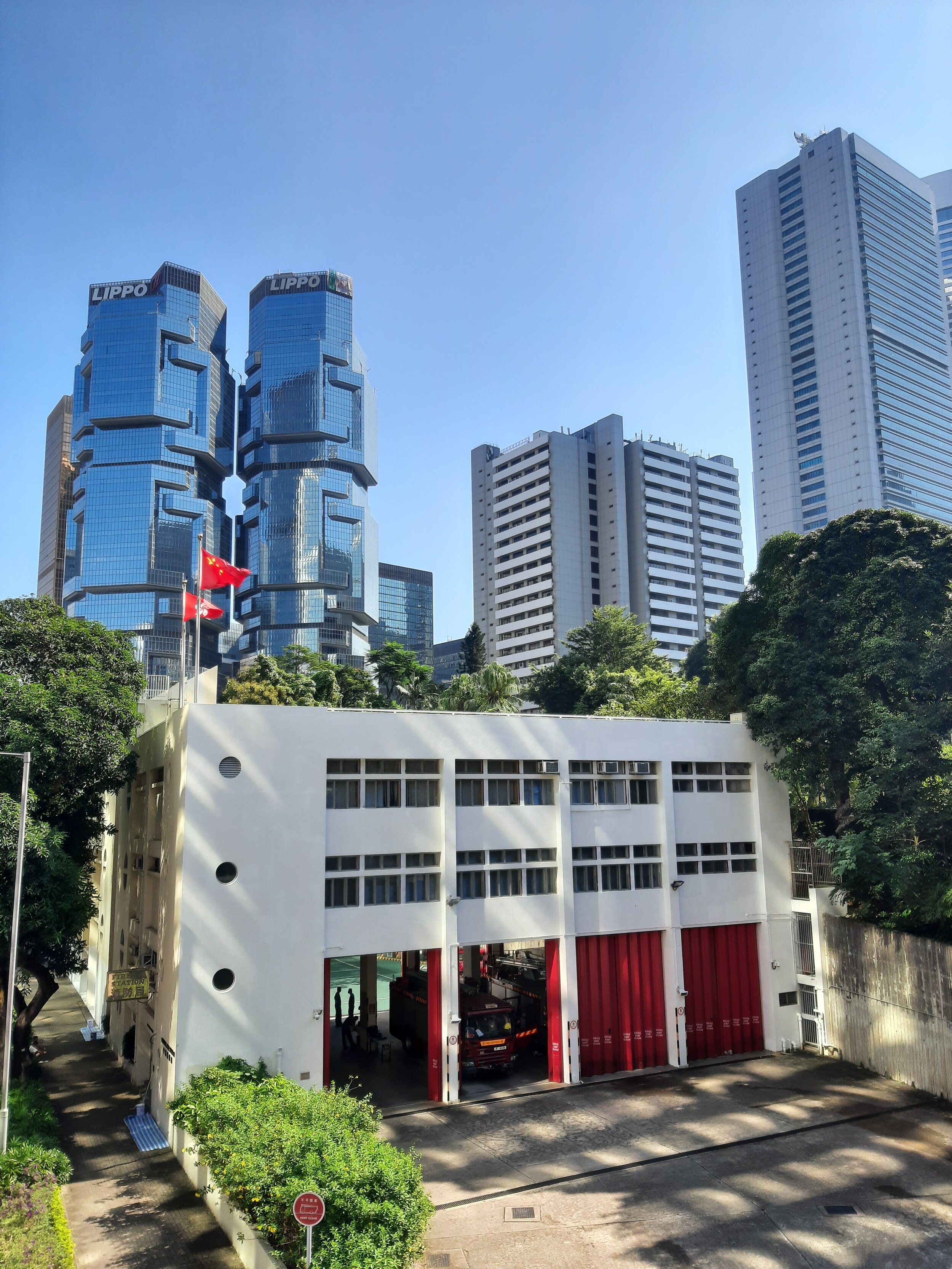
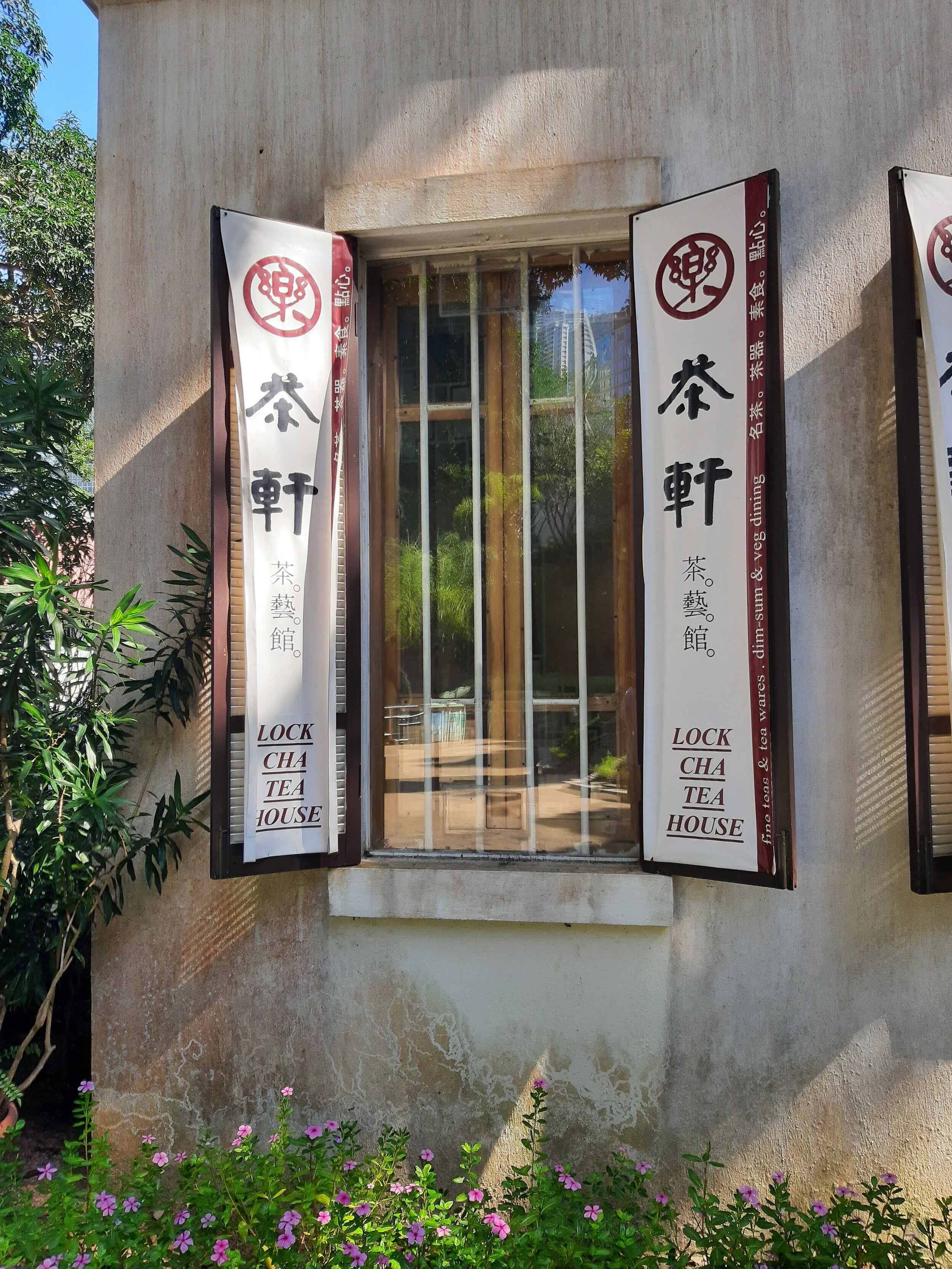
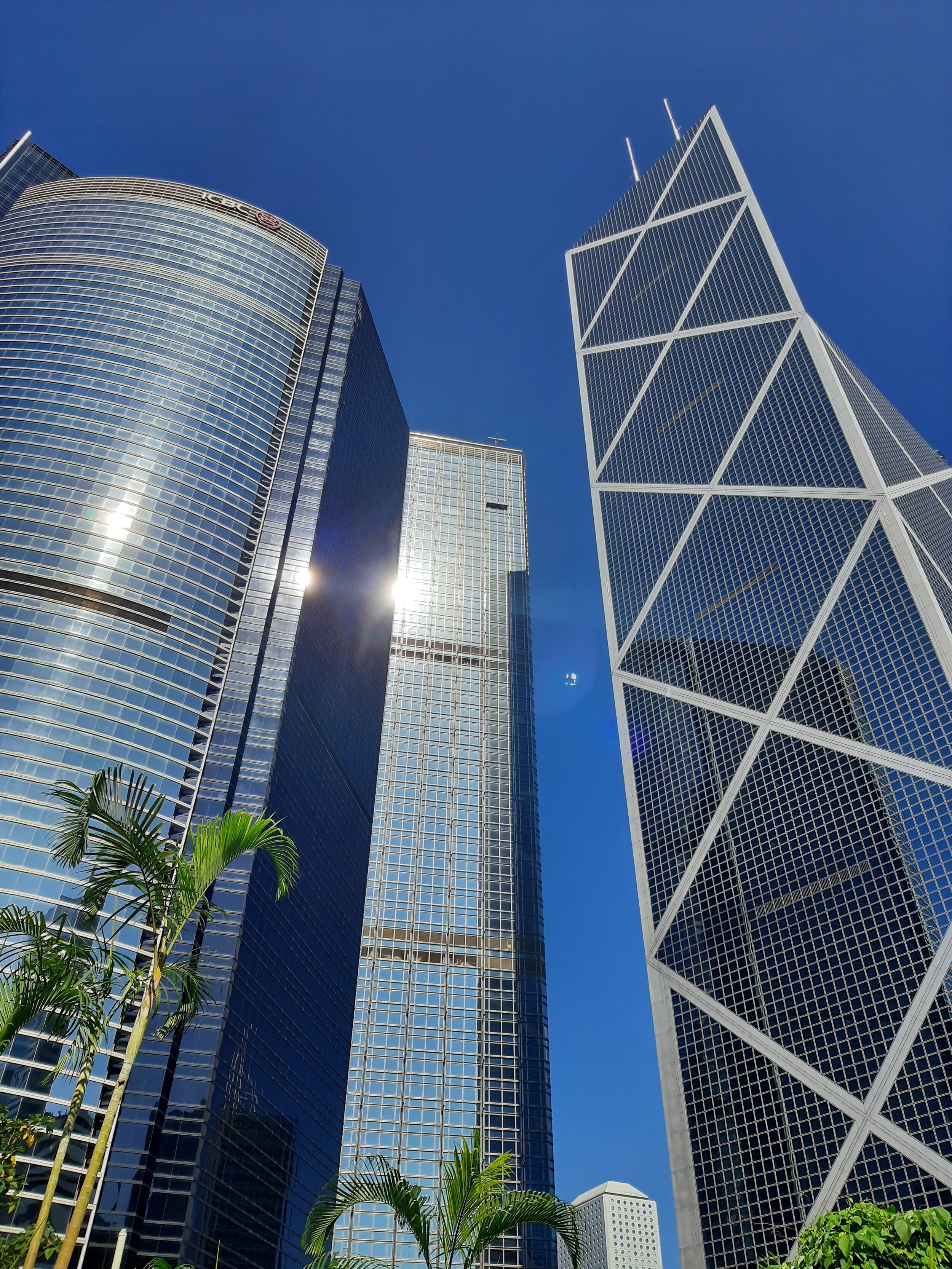
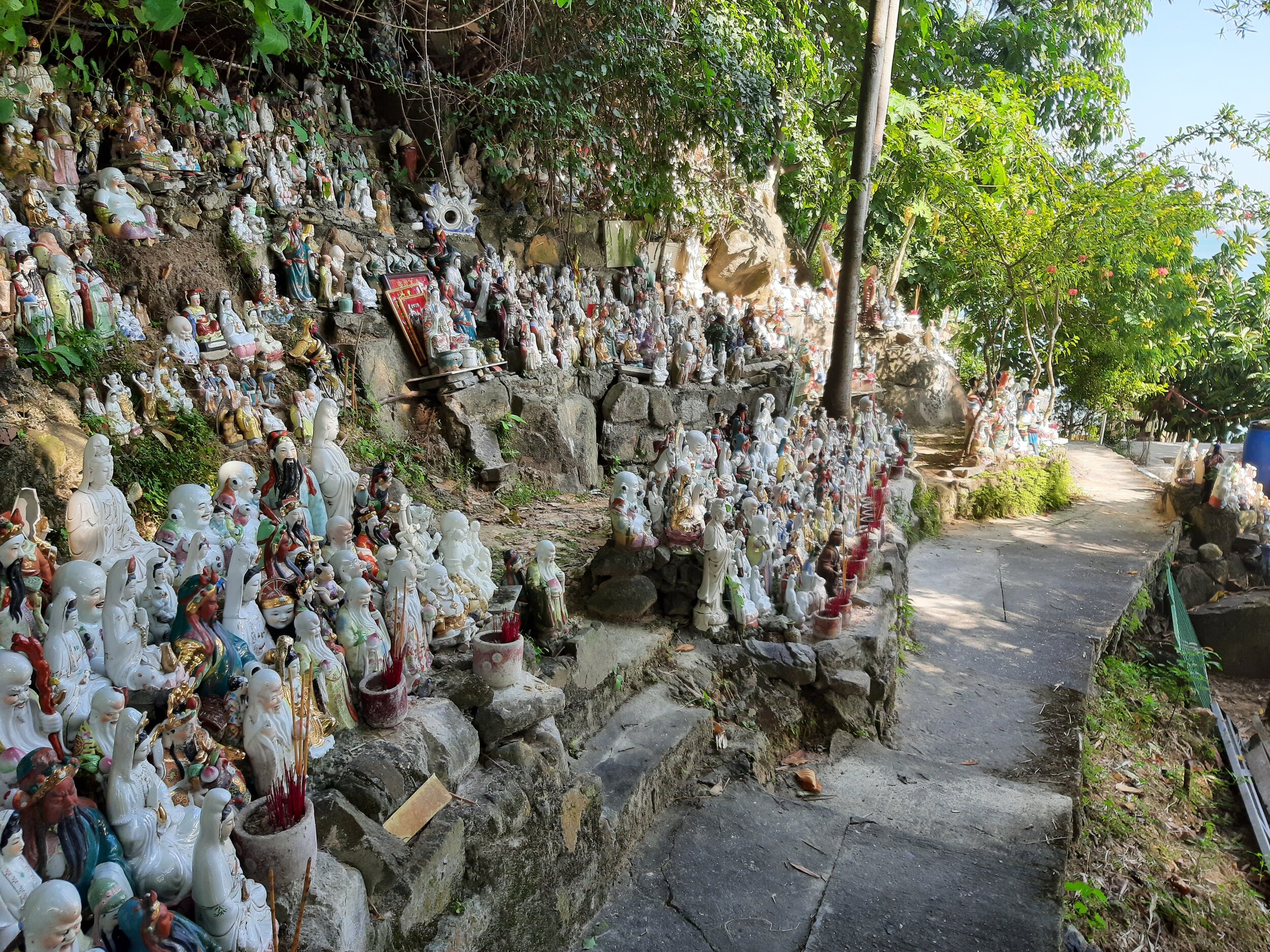
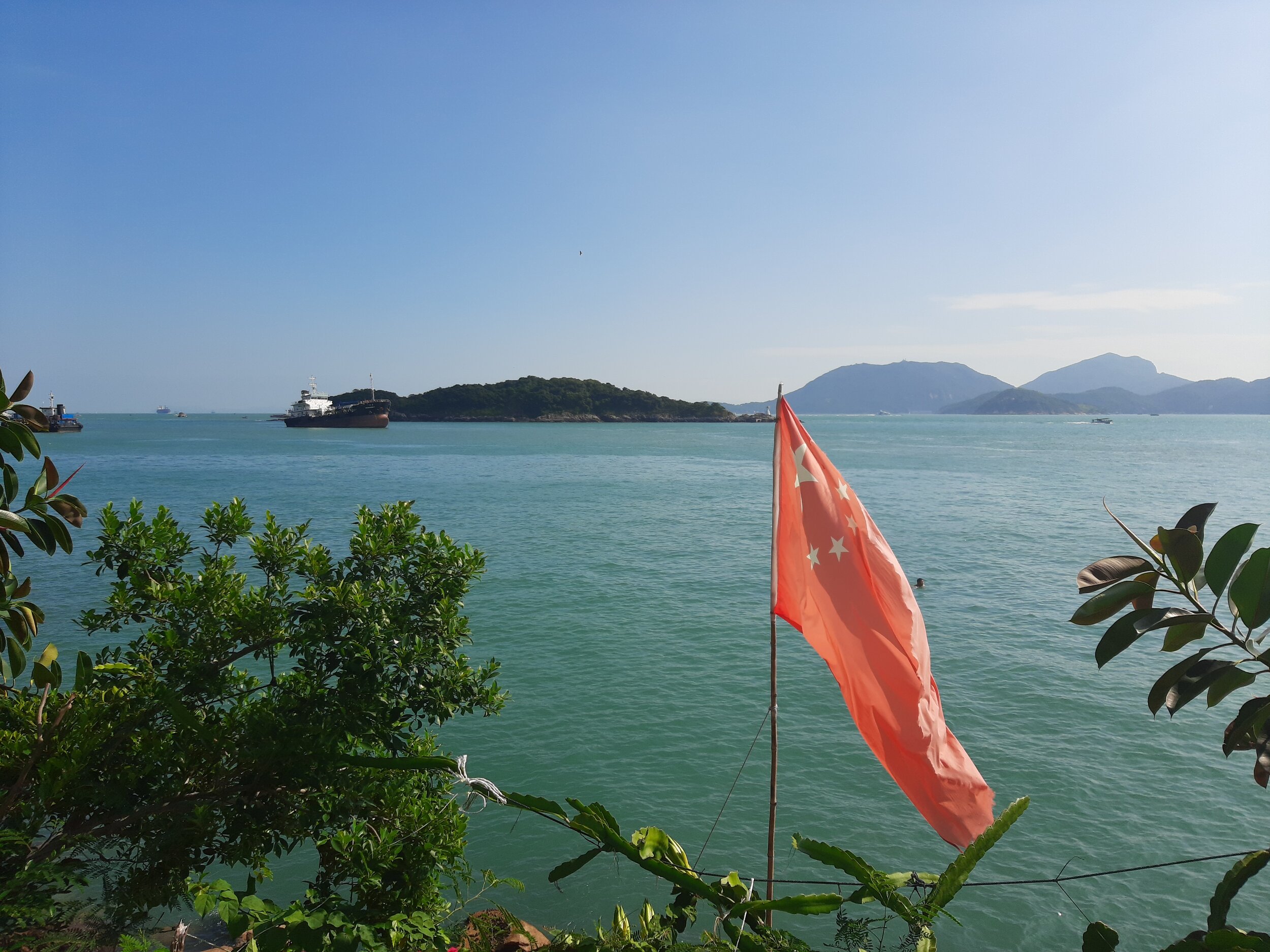
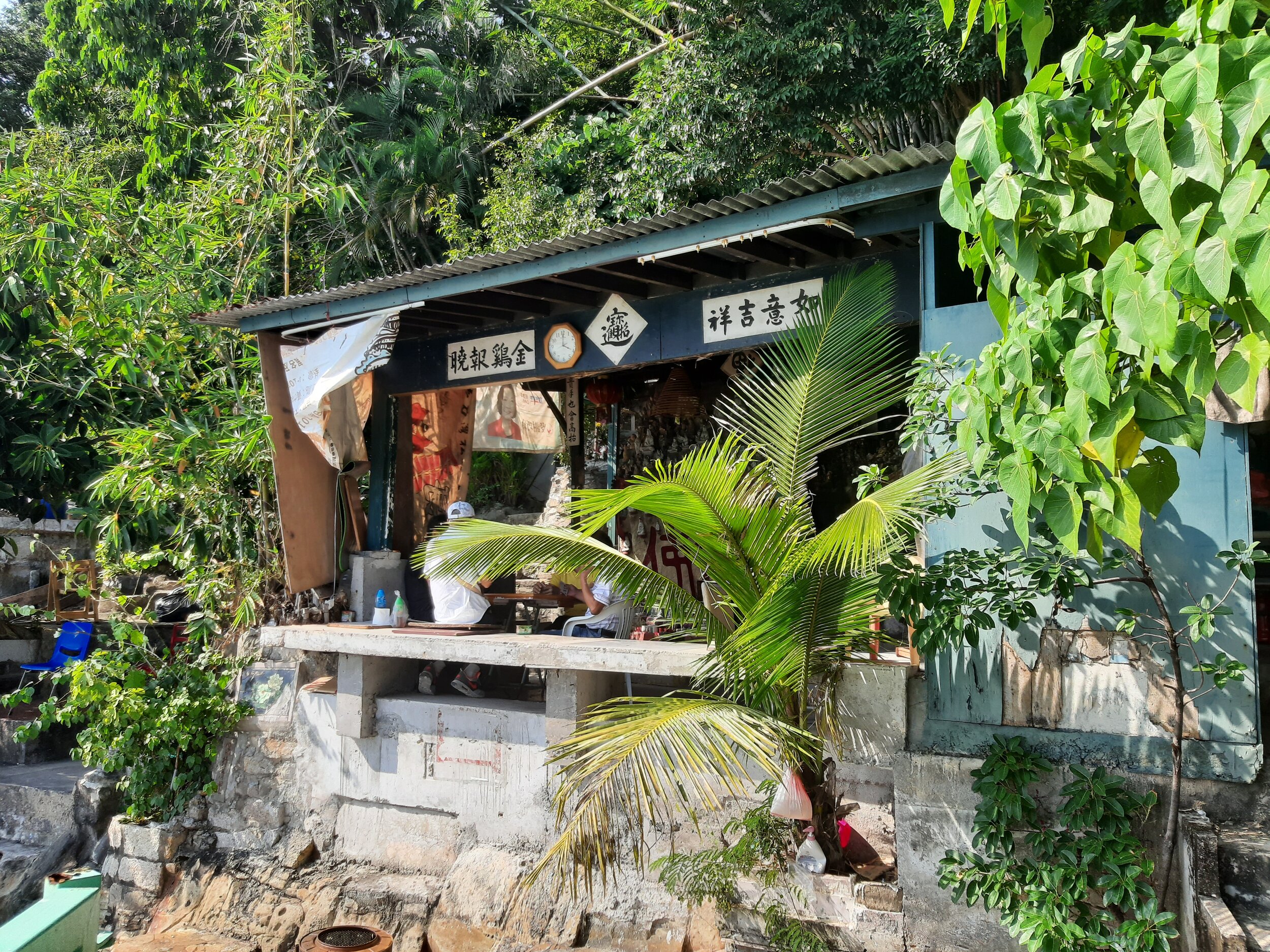
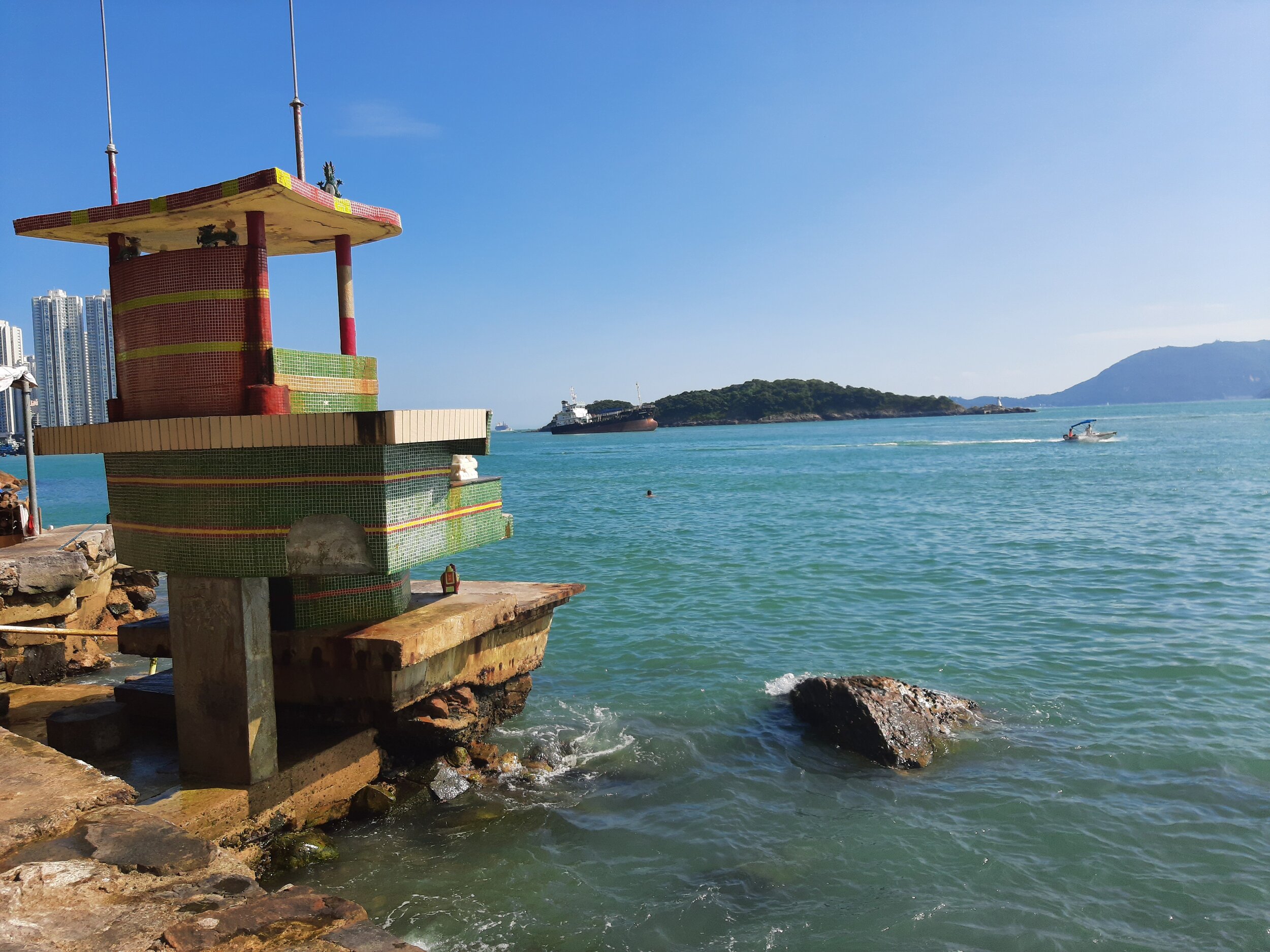
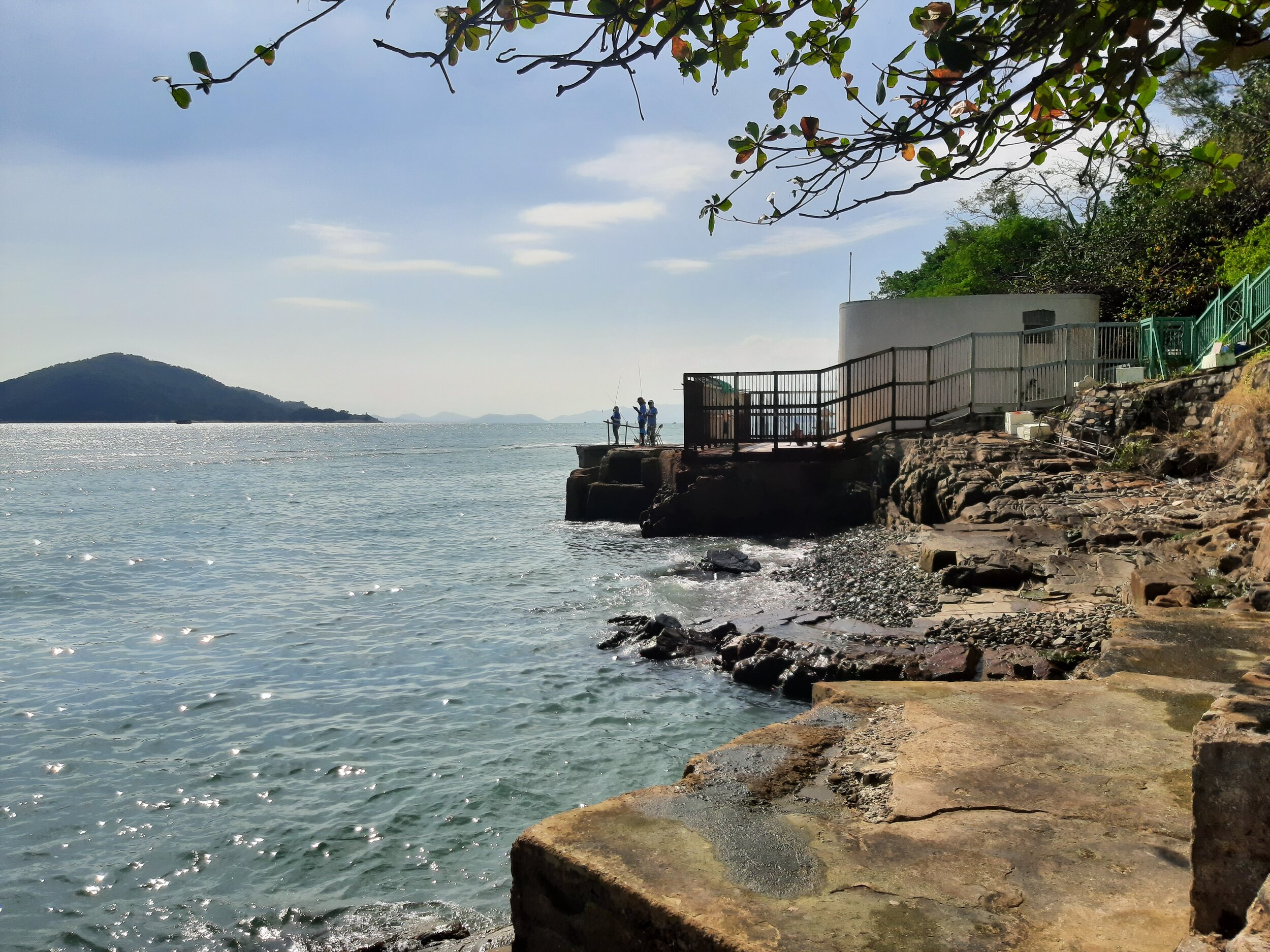
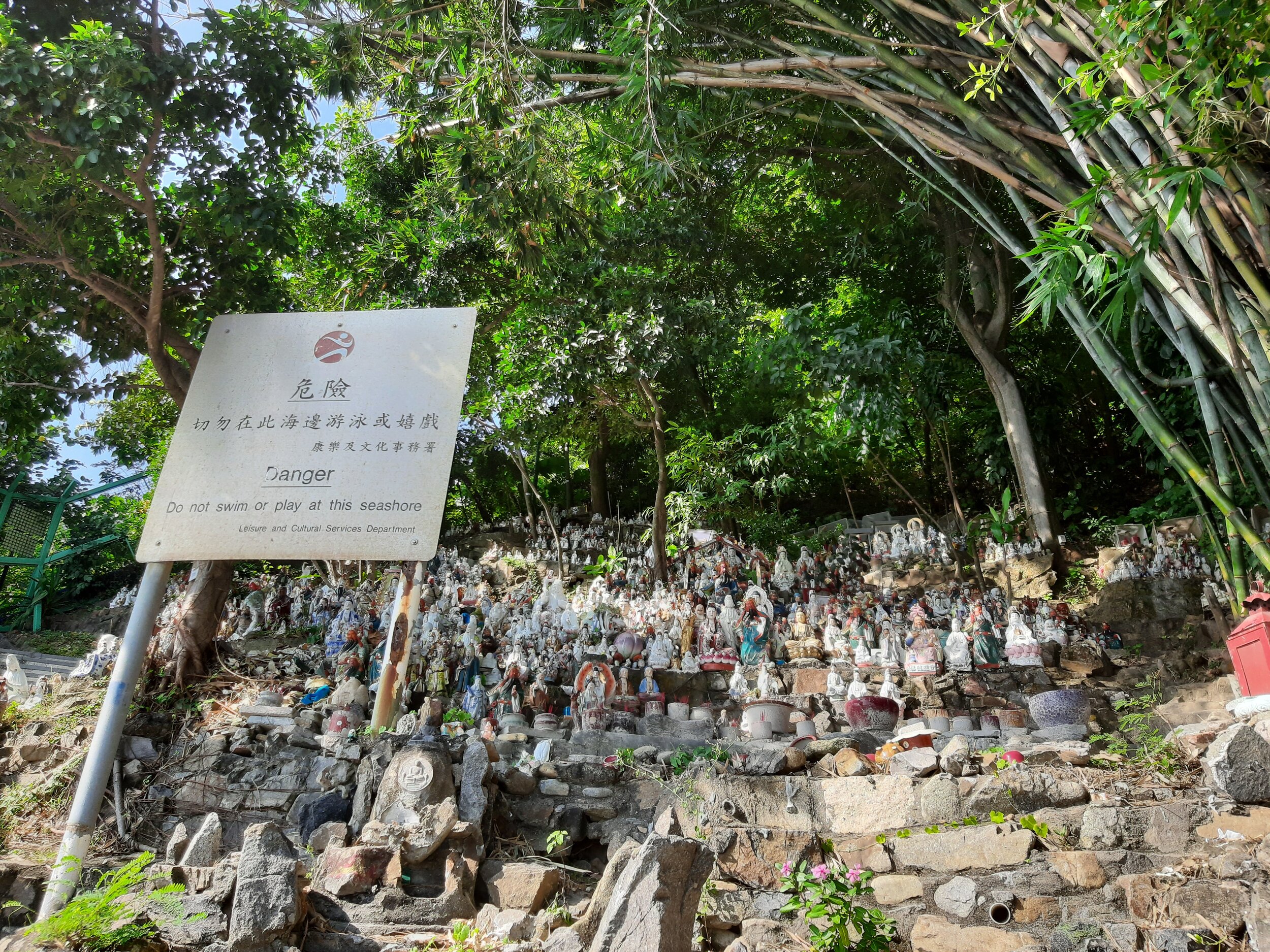
Beyond midtime quarantine in Hong Kong
Another 6 days of 14 to stay in quarantine. It is not dull, but I do start missing to move around. Gymnastics is not the same as being outside or at least running up a staircase. But all this is not allowed. All I can do is open the window for a bit. Joints and muscles seem to ache more when you don’t use them. Nothing serious, just uncomfortable. Otherwise, I go with my days quite disciplined. I slept in the first day, as a result of jetlag and the hilarious journey. But the rest of the time, I am preparing material in the morning and then read in the afternoon. In the evenings, I listen to audiobooks. Now, it is Mikhail Bulgakov’s Master and Margarita. Before it was Max Frisch’s Homo Faber and Montauk. Audiobooks I find a good way to recapture on the common literature body. But I would feel strange to listen to a book, I never read before. I also tried some American nonfiction. Even though the books may be good, narrators with American accents talk very straight into your face. Then I tried a female American narrator, and it was like listening to Amy Coney Barrett’s pressing voice.
I am now down to one meal a day and rarely get hungry. Even I exercise, I need no energy at all above the base metabolism. For that, I made a choice of restaurants registered on Foodpanda. It works great. The driver delivers to the reception and the concierge will make sure it arrives quickly. I don’t have a microwave to heat things up. So, speed is essential. Then the bell rings; I put on my mask and Lisa, a middle-aged lady from South East Asia, has put my package on a little chair outside my door. Sometimes, I chat a few sentences with Lisa, who is very friendly. She takes care of at least a whole floor of quarantines, like me. This is my only human-human interaction. Then I get a call once a day, where I report my body temperature. Even with my laptop, I am very “connected”, I avoid private “Zoom calls”. I had a few calls work related to Tilburg University. But that’s it. I am quite lucky in this situation, that I am more of an introverted character. I can imagine for somebody extroverted, it must be hell.
I have a huge can of Nestle instant coffee. That was not a good choice. A friend made me aware of Aeropress. That looks like a handy piece of equipment, and I will get one for sure once I am out.
Tomorrow morning, I have to submit another specimen and submit it to a lab in Wanchai. For that, I booked a delivery service online. Let’s see how it goes. Only after confirmation of my negative COVID-19 test will I be released on Sunday, October 18th. Even though this is not pleasant for me, SARs 2 - COVID-19 is even less pleasant for others. I heard from friends, what it means to get it. And, seems not everybody has the immune response of the current US president. Whatever that story was. So, I instead keep a low viral footprint.
I am running my computer models to understand the spread of the epidemic. Some decades ago, I had the idea to use these models in marketing and treat it like a “disease”. These were interesting consulting projects in the 1990s. But rather than showing you my raw Pascal code, I recommend looking at the models merged below by Grant Sanderson, who also has a website I follow regularly: https://www.3blue1brown.com/
A ray of sunshine in quarantine: German organic apple juice.
My longest journey to Hong Kong
I heard from a dear old friend, that some of the ancient faculty contracts with The University of Hong Kong contained a 3 months “home leave”. It assumed the “foreign” professors would retreat to London during the time of dreadful humid heat in South China, by means of a Lockheed Super Constellation via India or a ship through the Suez Canal. Compared with that, I was quick. But it was still my longest journey to Hong Kong. Actually, I still have not really arrived.
It started with the modern Airbus 340-300, operated by Lufthansa. Due to technical problems we had to abort boarding. They could neither mend it that night nor swap planes because of the night flight restrictions in Frankfurt airport. This meant a 16-hour delay and a night in a rather rundown nearby facility called Steigenberger Airport Hotel. Next day, the crew’s Covid tests had expired and had to be retaken. And as it sometimes happens a few of them turned out to be invalid and had to be redone again. This delayed the take-off for another 2 hours.
Arriving in Hong Kong, I found the airport was converted into something like a very professional field laboratory. Arriving passengers first had to scan a QRC with their smartphones and submit online a health declaration to the Department of Health. In return, you download a personal QRC which is your key through the process gates ahead. Next, you will get an electronic wristband, which you link to an App on your smartphone, again via QRC. Then you receive a lab sampling kit, watch a video explaining how to take a deep throat saliva sample and submit it. Thereafter you will be assigned a numbered chair and table in the former departure hall, grouped by planes. It looks like the setting of a huge exam and reminded me of taking “Abitur” (A-levels). There you sit 6 - 8 hours with a bottle of water and a few biscuits, waiting for the result. If negative, you go into quarantine for 14 days. When you arrived at your quarantine venue, you have to activate your wristband using your smartphone. Over the quarantine period, the smartphone app will alert you at random intervals (during daytime) to scan your wrist band and confirm your location. 12 days after commencing this, you have to submit another saliva sample by courier to a lab and wait until you are re-confirmed negative. Then you are free to go. If you don’t have a permanent residence in Hong Kong, you are supposed to check into a government-approved quarantine hotel. In my case, I choose a place in Wanchai, where it is easy to live of “Foodpanda” (a food delivery service) from the local restaurants and grocery stores which also use that service. You are not supposed to leave your room at any time.
It is a nice hotel on Hennessy Road. The staff is doing everything to make the stay as comfortable as possible. You will be greeted by somebody in full protective gear, with mask, gloves, face shield and disinfectant. It’s a government requirement and we joked about that I never before felt so much like being a biohazard. All deliveries will be contact-free and put in front of your door immediately. Once a day, you have to submit your body temperature, which was 36.4 °C today for me. You are of course not allowed to receive any guests.
Being locked in a room for 2 weeks is not something you are looking forward to. And I can’t say yet, how I will cope with it, as I am just now on day 1 of 14. But I am having for work and entertainment my laptop, a paperback of Evelyn Waugh’s The loved One (which I received as a gift before leaving Germany), and my Kindle book reader. I am, just now, listening to Marie Lafôret “Manchester et Liverpool”, as I write this, and having an instant coffee with milk powder. Life is good.
For exercise, I have been looking at inmate’s forums in the “Darknet”, exchanging ideas on how to exercise and keep fit in prison cells under solitary confinement. You see, the dark internet is not as dark as some might imagine. Neither is quarantine. I guess most of you have been in a prison at some time in your life, at least at a young age. Otherwise, I would consider you as boring and uninspired.
I also have a few comments to those fellow passengers who complained during the exhausting trip. Firstly, it is better to change an aircraft than to fly intercontinental with a technical defect which is classified critical.
Secondly, it is better to have night flight restrictions at Frankfurt airport and not to swap planes at night - putting a bunch of people into a (bad) bed, instead of waking up thousands. One was yelling at ground staff: “Lufthansa, has thousands of planes on the ground now! And you can’t get us a working one! How incompetent! Corona! … blablabla!”. I really admire how they take this bullshit with a smile. I could never do their job but probably would have taken him to the men’s room for a “chat”.
Thirdly, invalid Covid-Tests have to be retaken and the lab process takes a certain time. Otherwise, why do we take them at all? I know: “Nothing is impossible!!!”. Well, sorry to tell you: it is. This comment came from a typical “corporate style” business class passenger, who probably does not even know how a virus works and thinks a DNA is an abbreviation like ASAP (As Soon As Possible), meaning “Do Not Answer” (DNA), or something, perhaps USA - who cares?
And sure, yes, it was long waiting for Covid test results on a plastic chair in Hong Kong International Airport. I agree the biscuits were bad. But again: it is what it is. Quick tests have no approval yet. And the reason is, that we don’t know how well they work. Not everything which is annoying is based on “incompetence”. No, it is here even based on competence. Seriously. Doing it “quick and dirty”, we leave to the 80 / 20 people. These are the ones doing 20 % of the task to get praise, then throw 80 % of the shit at the others to get the blame. That’s “American style”. We don’t do that in Hong Kong. Look at the infection numbers to see the difference.
Finally, one fellow complained about “personal data protection” and resisted to submit to “Big brother”. Well, first of all, Hong Kong is a “Small brother”. And then, Covid-19 is a contagious disease, spreading easily. It’s not only your private matter. You can have your heart attack just for yourself. But this one is different.
Room with a view on Hennessy Road.
Grounded in Germany
We are now in Europe, where China was six weeks ago. The infection rates of Covid-19 are running up exponentially, and measures are in place, limiting travel and winding down public life. But it will take at least two weeks to see the effect. Even rich countries are experiencing capacity problems in intensive care units, and research on treatment and prevention is running high. There was the news that the US Government offered an exclusivity contract to German company CureVac in Tübingen to supply a vaccine to protect Americans, in case their mRNA method is successful in developing one quickly. Some even say, there was an offer of 1 bn USD on the table to take over the company. Curvac itself in a call announced that the medical condition of the CEO, who is now represented by a deputy has nothing to do with the visit to the White House, and they can not confirm any offer coming from the US. This is actually a very interesting call, of you have an hour to spare. By the way, why does it remain me of the German language training advert of Berlitz ((click here to watch)? Well, fair enough: it's "America first" and the "pursue of happiness" is in their constitution - their happiness obviously. We all were a bit disappointed when apparently the current US President was tested negative on Covid-19. The idea that he gets downed with a virus from China, which has a Mexican sounding name (Corona), would have been hilarious. But not the time for making jokes on the disease. It's too severe for that. And of course, we hope all (including our American friends) get will over it quickly. And over the next one also.
In Germany, public life is down severely. It will depend on whether people stick to the rules in the next whether we will get a curfew. Bavaria and some cities already announced this. I experience people here as calm, careful and helping each other out. Also, all the cancellations now are taken with the utmost goodwill by companies. I had to do a lot of travel cancellations and only experienced friendly and generous solutions. Yes, there are sometimes some empty supermarket shelves and personal tragedies, which social media and equally bad publications like the "Bild" jump on. Generally, such a crisis make it easier to distinguish "the good, the bad, and the evil". But most are good. Of course, when people lose their loved ones, and hospitals now procure iPads to make the hours of dying less lonely, we all shiver.
I also see some catalytic effect for things where a breakthrough was necessary anyway. For example, the acceptance of video conferencing instead of physical meetings, home office reducing commuting volume, integration of distance learning in education (and learning how to do it effectively), electronic payment instead of cash handling, automation and robotics, vaccine developments using modern mRNA methods (finally the “Ethics committee” is shutting up), and lastly also just better manners between people and improved personal hygiene. You see less bad behaving teenagers, nobody spits in the floor, and I was anyway really fed up by all this hugging and kissing as a greeting even of people I don’t know much. I looked at the 10 rules of Hygiene from the German Government website. And honestly, if people did not learn this as a child already, then it’s really time to learn it now. The new rule of 1.5 meters distance between each other, is for me personally less of social distancing, as it falls short of my lifetime requirement for everybody who comes closer than 3 meters has to obtain a visa. Still, this will transform the way we live in quite some way, and I think for the better. Till then, don’t forget it’s springtime. Easter is coming. A new year is lifting out of the winter. And we still have toilet paper. There is a lot to be happy about.
Spring time starting in times of shut down.
Friday 13th, 2020
Despite some outliers buying toilet paper and noodles, we get so far quite gracefully through this Covid-19. Since my last blogpost, the disease has been officially renamed. I was extremely surprised by how fast Malta actually implemented mandatory quarantine for people coming from risk regions. On Thursday it was also Germany, so Lufthansa cancelled all services to Malta. I should have thought twice to book myself onto a Friday 13th. Then on Friday 13th itself, Malta imposed obligatory quarantine for anybody entering from any country. Immediately three logistic hubs supplying food were set up, and delivery organised. Well, contemporary Maltese food is a bit “English”, you know what I mean, but it will supply you with more than the calories needed. Medication plans for the elderly were put on the road to have them avoid coming to the hospital for dispensing. All very swift and quite well thought through. I am even more impressed because looking at Malta, we have a county which in normal times can’t even implement traffic rules. But when things get tough, you can get a bit of a feeling why these islands have been invincible so many times. Sure, these things are hard to do. And of course, they hurt the economy. Now is the question of how to minimise the effects of that.
I was very impressed by how China was able to impose measures so quickly and curb the new infections relatively fast. Of course, not everything goes perfect, especially when as a first-mover it was not even clear what we were up against. And the effects were not just slowing down the infection rate in China effectively, but also it was a service to the rest of the world, winning time. Now it’s up to Europe and soon also to the USA to learn from that and define their strategies. Actually, this already happened in many cases. A little less dramatic, but I hope equally effective.
It took me another day in Malta until I was able to get a seat on a flight to Amsterdam, and from there I continued by train. Back in “Mainland Europe” people are calm, but take care of hygiene quite a bit. It appears that solidarity is on the rise between travellers. It’s not cool anymore to be dirty, put feet on the seat opposite, spit on the floor, or vent bad smell. It actually never was cool, but some people thought it would be. It could be that also in other aspects, there are some collateral improvements. Suddenly, people really use digital tools to avoid meetings, really do home office and avoid commutes. Last but not least, pollution is down. So is the stock market. But that’s fine. These kinds of crisis seem to have always a common pattern. And one outcome is, that a lot of “bullshit” disappears, all across the spectrum from smelly hippies to financial speculators. All gone. I don’t even know where they are now. On the other hand, creativity is blossoming. Italians perform operas at the window of the apartment they a quarantined in, others find ways to produce protective gear at home, convert household chemicals into disinfectants and find ways to keep operating under these conditions. With all the damage and tragedy acknowledged, I personally do like such circumstances more than boom times, when even the dumbest mind stays afloat in the current. Of course now they won’t sink. But this is a good exercise for the bigger problems we urgently have to solve on this planet.
View on Kalkara on the way to Birgu. I was not subject of the quarantine, but actually there worse things than sitting here on the balcony for two weeks.














